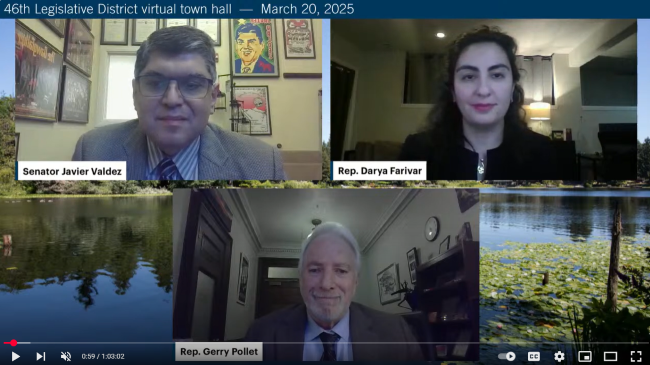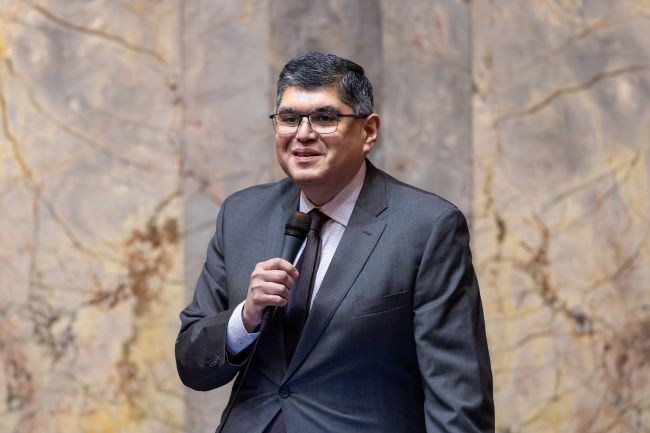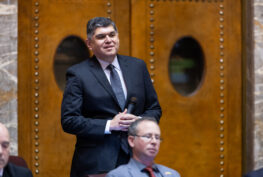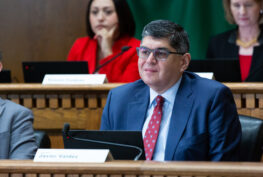Dear friends and neighbors,
We’re officially two-thirds of the way through the legislative session, and it feels like everything is moving faster than ever. I have some important news to share about the recent budget proposals announced this week, so here’s a quick rundown:
Senate Operating Budget
The Senate budget leaders have presented an operating budget plan that takes on significant challenges to ensure Washington’s fiscal health and continued to provide essential services, particularly for our most vulnerable communities. This budget addresses the state’s budget deficit with a combination of $6.5 billion in cuts and $16 billion in new revenue over the next four years. Managing this deficit required difficult decisions, including reducing funding for some programs while protecting critical services like health care and education. The ongoing economic uncertainty and inflation added complexity to the process. Despite these challenges, this plan prioritizes long-term stability for our state and maintains essential services.
Key investments and reforms in the operating budget include:
- K-12 Education: $750 million annually for K-12 education, focusing on school operating costs and special education.
- Health Care, Housing, and Food Assistance: Ensures vulnerable Washingtonians continue to receive critical support, including a $25 million increase to expand resources for crime victims and strengthen recovery services.
- Retirement and Collective Bargaining: Approves collective bargaining agreements for state employees and provides cost-of-living adjustments for retirees in the Public Employees’ Retirement System (PERS 1) and Teachers’ Retirement System (TRS 1).
- New Revenue Streams: Introduces a financial intangibles tax on individuals with more than $50 million in publicly traded assets, and a 5% payroll tax on employers with more than $7 million in annual payroll. The budget also includes property tax reforms and the repeal of 20 ineffective tax exemptions, along with a sales tax reduction from 6.5% to 6%.
By preserving $7.6 billion in reserves by the end of the 2027-29 biennium, this budget ensures long-term fiscal stability for our state. It strikes a balance between responsible investments and a fairer tax system, all while addressing Washington’s most pressing needs and supporting our vulnerable communities.
Senate Transportation Budget
The Senate’s bipartisan transportation budget proposal includes two distinct approaches to address a $1 billion shortfall. The first proposal would focus on cuts, reducing the capital project budget by $941 million and state agency operating costs by $156 million. While this all-cuts option would close the budget gap, it would delay key projects and impact operations at the Washington State Department of Transportation, state patrol, and Department of Licensing. This approach would slow our progress and is not a sustainable long-term solution.
The second, more balanced proposal includes a mix of new revenue sources and strategic spending to ensure critical projects move forward. This plan will generate about $10.2 billion over the next six years through a combination of cost reductions and new revenue streams, including:
- A 0.3% shift in the state sales tax, generating about $800 million annually, redirected to the transportation budget starting in 2027.
- A 10% luxury-vehicle tax for vehicles over $100,000, a $1-per-attendee fee for venues hosting events with over 20,000 attendees, and a $125 fine for speeding in work zones.
This proposal includes $2 billion for preserving bridges, roads, and critical infrastructure, as well as $450 million to improve highway safety and $700 million for state and local safety projects.
I’m especially excited two of my budget requests were included in this proposal:
- $16 million in the 2025-2027 budget and $33 million in future years for a total of $50 million for North Aurora Avenue safety. These funds would enhance safety along this critical stretch, ensuring safer roads for our communities.
- $500,000 from the Move Ahead WA account to fund the North Seattle I-5 Lid Feasibility Study. This study will explore the possibility of creating a lid over I-5 between Wallingford and the University District, transforming the area into a vibrant urban space.
Town Hall Recap: Thank You for Joining!
Last Thursday, we held a virtual town hall, and I want to thank everyone who attended and participated. We covered a wide range of topics, including the state budget, housing, public safety, and concerns over recent federal actions. Your questions and input made for a productive discussion.

If you missed the town hall or want to revisit some of the discussion, you can watch the full event here. If you didn’t get a chance to ask your question or want to follow up, feel free to reach out to me directly.
Looking Ahead
Thank you for your continued support and engagement. As always, I encourage you to stay engaged and share your thoughts. Please feel free to reach out to me via email at javier.valdez@leg.wa.gov or by calling my office at (360) 786-7690. You can also stay informed about my activities by visiting my website or following me on Facebook, X and Instagram for regular updates.
Sincerely,

Sen. Javier Valdez





